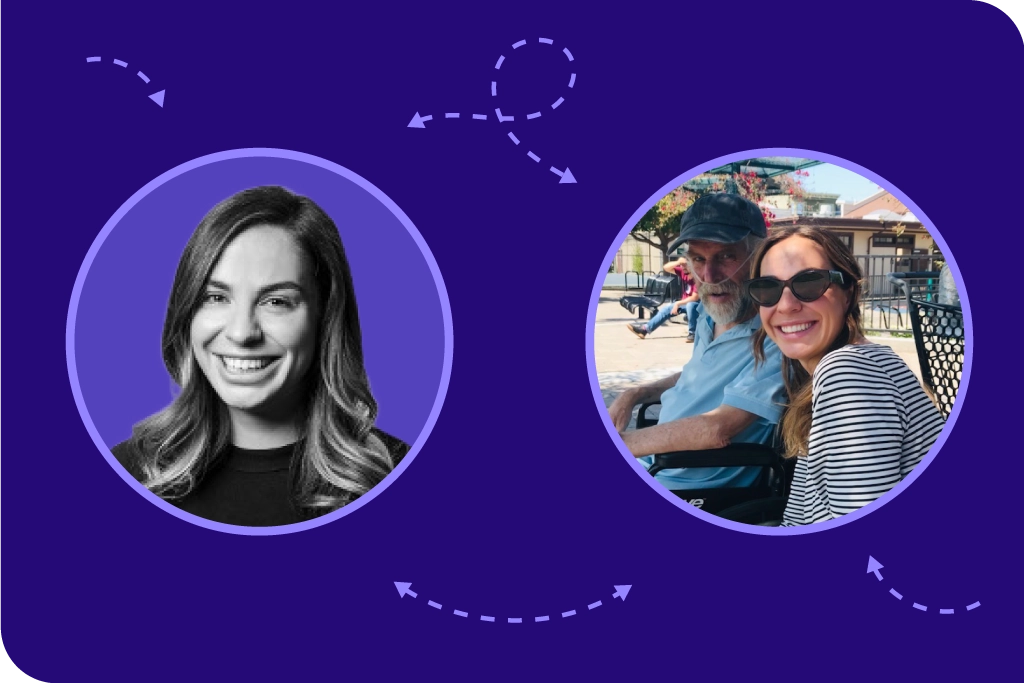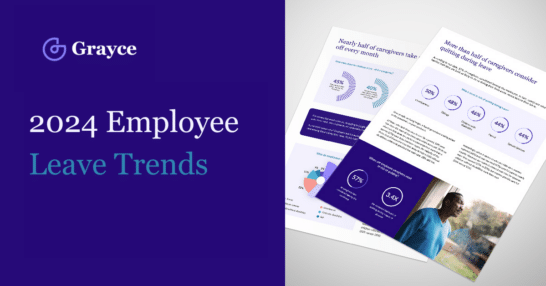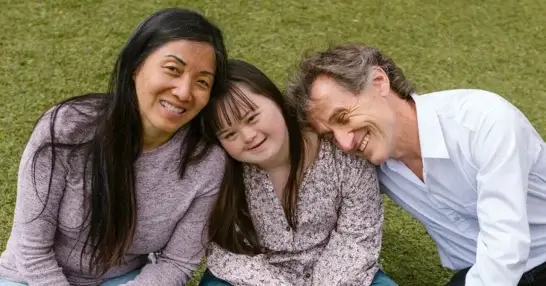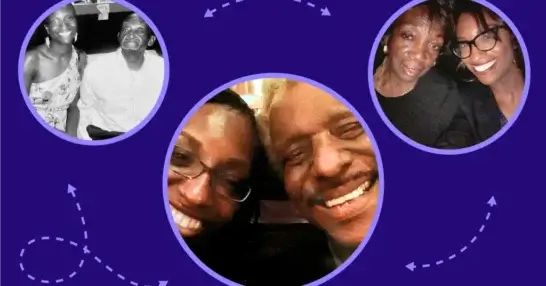Millions of Americans work full-time while spending nearly as many hours caring for family and other loved ones after their workday ends. While most wouldn’t have it any other way, balancing these often competing responsibilities is demanding—to say the least. At Grayce, we see these employees not as a monolith of “caregivers” but as individuals with unique journeys deserving of recognition and exploration.
Below is one of a series of profiles we’ve created celebrating these heroic individuals, their unique perspectives on what it means to be a caregiver, and how caring for others has shaped their lives. By doing so, we hope to expand perspectives, build community, and explore how employers can create understanding and supportive environments that consider employees as whole people, both inside and outside of work.
Meet Natalie
Natalie is an investor at a venture capital firm who had just been promoted to partner when her dad was diagnosed with stage 4 cancer. After learning of the diagnosis, she immediately shifted her focus to caring for her dad through his illness. Still, Natalie didn’t want to leave her job and give up on the years of work she had put in to get to where she was.
Grayce’s Head of Care Operations, Danika Mills, caught up with Natalie just days before she gave birth to her first baby. They discussed her thoughts on caregiving and how it has impacted her life and career.
What Natalie had to say about caregiving
Q: First, tell us a little about yourself and your family
I grew up in San Francisco as an only child. My dad was an immigration lawyer, and my mom was a social worker, so my home was often a refuge for needy people. A spirit of compassion seemed to permeate my family–there was always someone staying with us who was going through tough times for one reason or another.
Growing up, I was close to both of my parents, especially my father. Tennis was a big part of my life; I played college-level tennis, and my dad was my coach and biggest cheerleader. After graduation, I worked at a very demanding, large investment bank. I remained close to my parents throughout those long hours and early mornings, never losing sight of the values they instilled in me.
Q: What were your biggest fears about caregiving?
My dad’s diagnosis came just after I was promoted to partner in my firm. I had been working hard for that achievement, and my life and career suddenly felt flipped upside down. I was scared that I wouldn’t be able to find the balance between my work and providing the best care for my dad.
I quickly learned I had to be honest and upfront with everyone involved. If my dad had an appointment that I had to take him to, my colleagues were the first to know. If my dad had a tough day, I told my team what was happening so they knew I might have to leave work or be distracted while at work.
My team rose to the challenge and supported me. They gave me the flexibility I needed to attend to my father, and I was able to manage both. I was often exhausted and worn out, but knowing that my team had my back made a huge difference.
Q: What made you feel most supported as a caregiver?
The overwhelming reality of my dad’s diagnosis took an emotional toll. There’s no roadmap or strategy to prepare you for the raw unpredictability of dealing with a terminal illness. I was grateful for my husband, who I leaned on for support. He was also facing his own emotional caregiving journey caring after me, and we navigated the peaks and valleys of our dual paths together.
I also worked hard to care for myself throughout the process. I listened to comforting music, took long, solitary walks, and, yes, ordered take-out from my favorite restaurants. I did what I needed to do to maintain my emotional balance.
Q: The most challenging part of your caregiver journey?
I had to let go of all control. Before I was a caregiver, I had a set schedule. I showed up to work every day on time, and I could control my calendar and responsibilities. When my dad got sick, I lost all of that control. I had to learn to be flexible, to be there when my dad needed me, regardless of when it was convenient. I had to push deadlines, shift meeting times, and let go of the controlled plans I had for my life.
Caregiving is challenging, and it is often not recognized. I work hard at work, and when I reach my goals, there’s tangible evidence of my efforts. However, as a caregiver, I had to let go of that and do the work for my dad and myself. The effort did not translate into better health outcomes, and for many days, it felt like we were taking five steps back before taking a single step forward.
Q: The most significant piece of advice for caregivers?
It’s so important to embrace the present moment. Sometimes, I removed my venture capitalist and caregiver hats and let myself be with my dad. As crucial as that next big presentation at work, or a doctor appointment or hospital bill was, there were times that I just needed to take a step back and spend time with him. I needed to play and laugh and find joy in the storm. As it turned out, my dad passed away less than a year after his diagnosis, so I feel incredibly grateful for those memories of walking in our neighborhood and talking with him.
I also want to remind caregivers that no matter how overwhelmed you are or how hard things get, it’s vital that you take the time to replenish your emotional reserves. Find ways, even small ones, to take care of yourself so that you can care for others.
Finally, surround yourself with people who understand the emotional toll of caregiving. My husband and close friends who had experienced similar situations were my rock during that time. Having people to call in my lowest moments gave me a sense of safety amidst the storm.
Q: Where are you now in terms of caregiving?
Sadly, my father passed away, but I have a baby coming any day now, and so my role as a caregiver is about to begin again. Since my father’s diagnosis, illness, and death, I now feel more attuned to the needs of caregivers in my office.
My perspective has shifted. Before, I was less aware of what it meant to be a caregiver, but now I acutely see the need for companies to invest in tools and platforms for caregivers. My personal experiences gave me perspective on what caregivers face daily, and this awareness has made me a better leader and colleague.
People are often surprised at how open I am about my dad. It is painful to talk about—I miss him. It was a tough time in my life, but it was also a blessing to have such a fantastic father that I cared for deeply, and a privilege that he trusted me to care for him. I like to lead honestly; I hope other caregivers don’t feel like they have to live in the shadows. I’m always happy to provide insight so other employees can face their caregiving struggles with resilience.
I still work in a high-performance environment. My job is incredible, challenging, and takes a lot of time. And yet, because my company has taken the plight of caregivers seriously and invested in innovative solutions to support them, I can keep my job and continue with my career trajectory.
My personal and professional landscape was reordered a bit after my dad’s diagnosis. But, because of the support I had, I was able to push forward and stay strong. I’m looking forward to my next caregiving adventure—to this baby who will challenge me in ways I likely can’t imagine.
I know I can do this. After all, I have all the support I need.




